
Medical aid rushed to stricken Somalia after bombing
Planes from the United States, Kenya and Qatar landed in Mogadishu on Tuesday. Mogadishu - Somalia's allies sent planes carrying medical supplies and doctors on Tuesday, while the diaspora rallied to donate blood to help the country cope with the crushing aftermath of its worst ever bombing.
At least 276 people were killed and 300 injured on Saturday when a truck packed with explosives blew up in a busy commercial district, according to the government, however medical sources suggest the death toll could be over 300.
The disaster quickly overwhelmed the fragile health system of a country which has experienced nearly three decades of civil war and anarchy and is heavily dependent on foreign aid.
Planes from the United States, Kenya and Qatar landed in Mogadishu on Tuesday.
"We have received today three aircrafts carrying medical supplies from the USA, Qatar and Kenya and apart from the one from USA government, the other two will carry back wounded people, about 35 victims," Mogadishu mayor Tabid Abdi Mohamed told reporters.
On Monday Turkey - a leading donor and investor in Somalia - ferried 35 wounded people to Ankara after its health minister, Ahmet Demircan, accompanied a plane carrying supplies, medics and disaster experts to the country.
At least 276 people were killed and 300 injured on Saturday when a truck packed with explosives blew up in a busy commercial district, according to the government, however medical sources suggest the death toll could be over 300.
The disaster quickly overwhelmed the fragile health system of a country which has experienced nearly three decades of civil war and anarchy and is heavily dependent on foreign aid.
Planes from the United States, Kenya and Qatar landed in Mogadishu on Tuesday.
"We have received today three aircrafts carrying medical supplies from the USA, Qatar and Kenya and apart from the one from USA government, the other two will carry back wounded people, about 35 victims," Mogadishu mayor Tabid Abdi Mohamed told reporters.
On Monday Turkey - a leading donor and investor in Somalia - ferried 35 wounded people to Ankara after its health minister, Ahmet Demircan, accompanied a plane carrying supplies, medics and disaster experts to the country.
Djibouti's Health Minister Djama Elmi Okieh accompanied a team of specialist doctors and paramedics in a military aircraft to assist the wounded, according to state media.
On Tuesday Kenyan Foreign Minister Amina Mohamed announced that the country would evacuate 31 injured Somalis for specialised treatment in Nairobi, and send 11 tonnes of medicine to the neighbouring country.
In addition the Kenyan Red Cross launched a fundraising drive for victims of the attack.
"This is a very good sign, for the fact that we are getting medical assistance because we cannot handle such a massive disaster," said Dr Abdukadir Haji Adem who runs Mogadishu's only free ambulance service AMIN.
Blood drive in 'Little Mogadishu'
According to his count the death toll stood at 302. Death tolls are notoriously difficult to establish in Mogadishu, with families often quickly taking victims away to be buried.
"When the tragedy happened, the telephone network was down and our coordination was very bad because we don't have walkie talkies, our equipment is insufficient to deal with a terrible incident like the one," he said.
A GoFundMe page started by a Somali living in Sweden has raised $17 000 for the ambulance service - which operates a fleet of 10 second-hand vehicles - in only two days.
Somalia's years of conflict, which began when Siad Barre's military regime collapsed in 1991, has created a diaspora of about two million people.
The largest population of Somalis abroad is in Kenya, where hundreds lined up on Wednesday in Nairobi's Eastleigh neighbourhood - often dubbed Little Mogadishu - to donate blood to be airlifted to their countrymen.
"Quite a number of the casualties what they need at the moment is blood ... the turnout is massive, we have a lot of donors, we are really overwhelmed," said Abdi Nasir Dahir of Kenya's national blood transfusion services.
The blast occurred in Hodan, destroying some 20 buildings in a bustling commercial district, leaving scores of victims burned beyond recognition.
Several experts told AFP the truck was probably carrying at least 500 kilos of explosives.
No claim from Shabaab
There has been no immediate claim of responsibility, but the Shabaab, a militant group aligned with Al-Qaeda, carries out regular suicide bombings in Mogadishu in its bid to overthrow Somalia's internationally-backed government.
The group has a history of not claiming attacks whose scale provokes massive public outrage.
Already more than 100 unidentified people have been buried who were burned beyond recognition.
While the rapid burial is partly due to Islamic culture, the Somali government also has no proper morgue nor the capability to carry out forensic tests to identify the victims.
"The government exhausted every effort to identify these dead bodies ... but it became so difficult that it decided to bury them all together," said local government official Muhidin Ali.
The devastating attack is a blow to Somalia's fledgling government, coming eight months after President Mohamed Abdullahi Mohamed was elected to great fanfare in a limited voting process that was nevertheless seen as the most democratic yet in the notorious failed state.
He came into office declaring war on Shabaab, which has carried out regular attacks on Mogadishu since African Union and Somali troops drove them out of the capital in 2011.
According to the Nairobi-based Sahan thinktank, at least 723 people were killed and over 1 000 injured in bomb attacks in 2016 in Somalia.
On Tuesday Kenyan Foreign Minister Amina Mohamed announced that the country would evacuate 31 injured Somalis for specialised treatment in Nairobi, and send 11 tonnes of medicine to the neighbouring country.
In addition the Kenyan Red Cross launched a fundraising drive for victims of the attack.
"This is a very good sign, for the fact that we are getting medical assistance because we cannot handle such a massive disaster," said Dr Abdukadir Haji Adem who runs Mogadishu's only free ambulance service AMIN.
Blood drive in 'Little Mogadishu'
According to his count the death toll stood at 302. Death tolls are notoriously difficult to establish in Mogadishu, with families often quickly taking victims away to be buried.
"When the tragedy happened, the telephone network was down and our coordination was very bad because we don't have walkie talkies, our equipment is insufficient to deal with a terrible incident like the one," he said.
A GoFundMe page started by a Somali living in Sweden has raised $17 000 for the ambulance service - which operates a fleet of 10 second-hand vehicles - in only two days.
Somalia's years of conflict, which began when Siad Barre's military regime collapsed in 1991, has created a diaspora of about two million people.
The largest population of Somalis abroad is in Kenya, where hundreds lined up on Wednesday in Nairobi's Eastleigh neighbourhood - often dubbed Little Mogadishu - to donate blood to be airlifted to their countrymen.
"Quite a number of the casualties what they need at the moment is blood ... the turnout is massive, we have a lot of donors, we are really overwhelmed," said Abdi Nasir Dahir of Kenya's national blood transfusion services.
The blast occurred in Hodan, destroying some 20 buildings in a bustling commercial district, leaving scores of victims burned beyond recognition.
Several experts told AFP the truck was probably carrying at least 500 kilos of explosives.
No claim from Shabaab
There has been no immediate claim of responsibility, but the Shabaab, a militant group aligned with Al-Qaeda, carries out regular suicide bombings in Mogadishu in its bid to overthrow Somalia's internationally-backed government.
The group has a history of not claiming attacks whose scale provokes massive public outrage.
Already more than 100 unidentified people have been buried who were burned beyond recognition.
While the rapid burial is partly due to Islamic culture, the Somali government also has no proper morgue nor the capability to carry out forensic tests to identify the victims.
"The government exhausted every effort to identify these dead bodies ... but it became so difficult that it decided to bury them all together," said local government official Muhidin Ali.
The devastating attack is a blow to Somalia's fledgling government, coming eight months after President Mohamed Abdullahi Mohamed was elected to great fanfare in a limited voting process that was nevertheless seen as the most democratic yet in the notorious failed state.
He came into office declaring war on Shabaab, which has carried out regular attacks on Mogadishu since African Union and Somali troops drove them out of the capital in 2011.
According to the Nairobi-based Sahan thinktank, at least 723 people were killed and over 1 000 injured in bomb attacks in 2016 in Somalia.

 0
0 
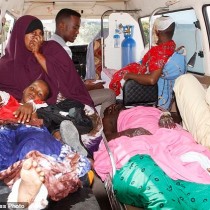


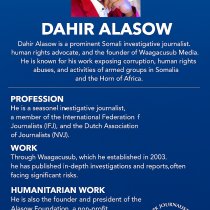
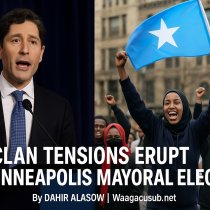
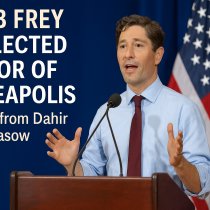
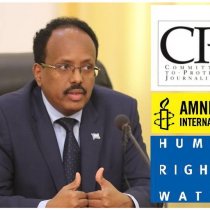
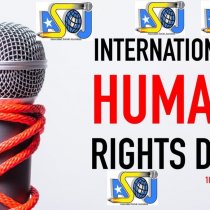
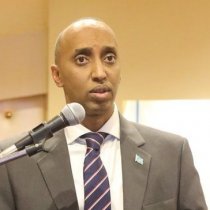
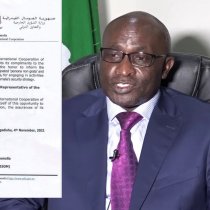


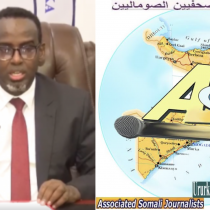
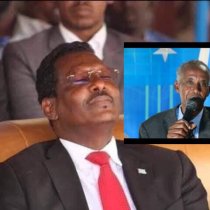

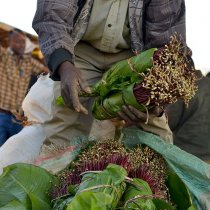


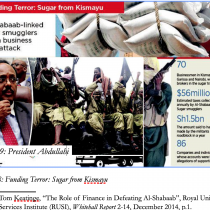

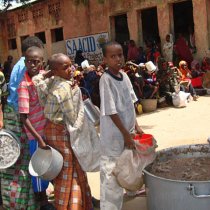
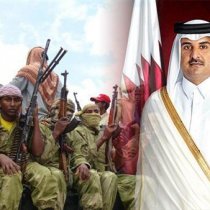

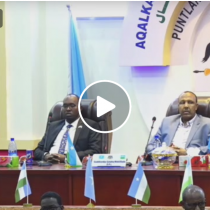
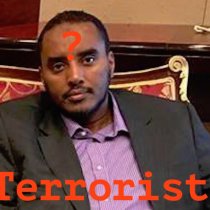
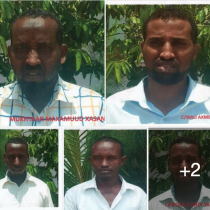
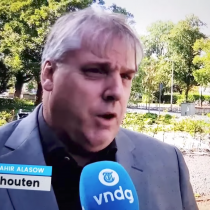
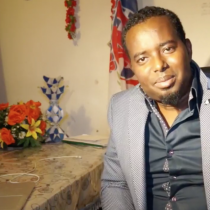
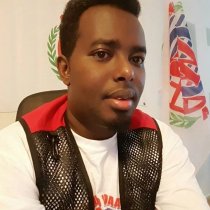
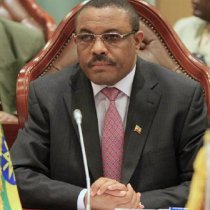
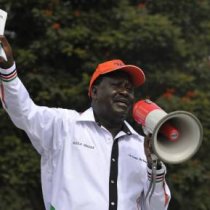
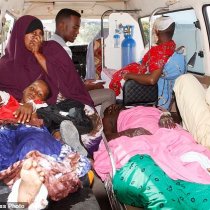
Medical aid rushed to stricken Somalia after bombing
Planes from the United States, Kenya and Qatar landed in Mogadishu on Tuesday.